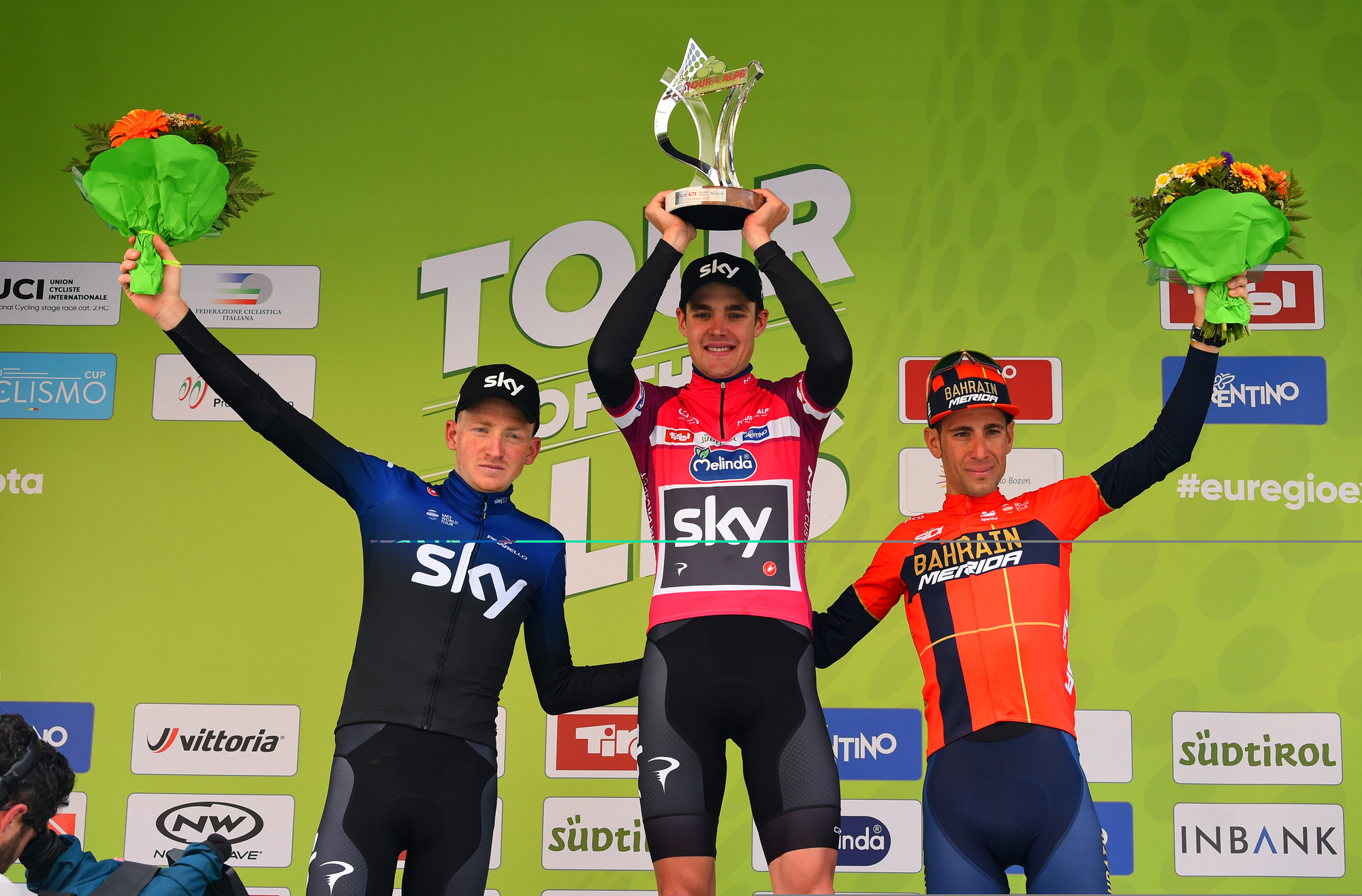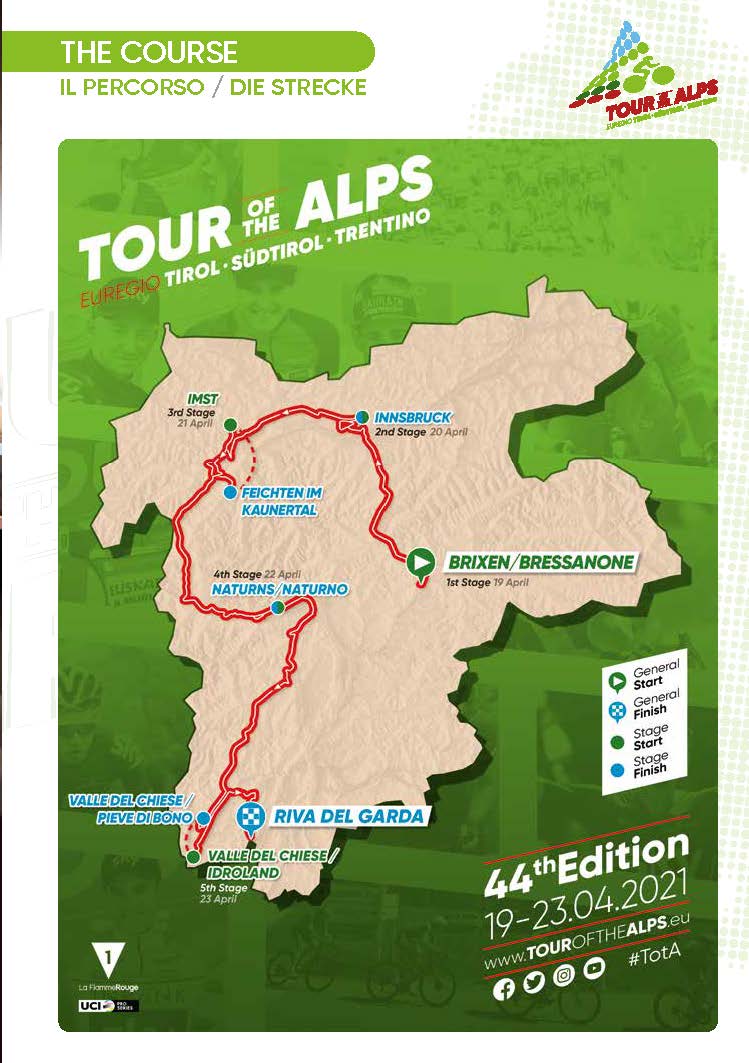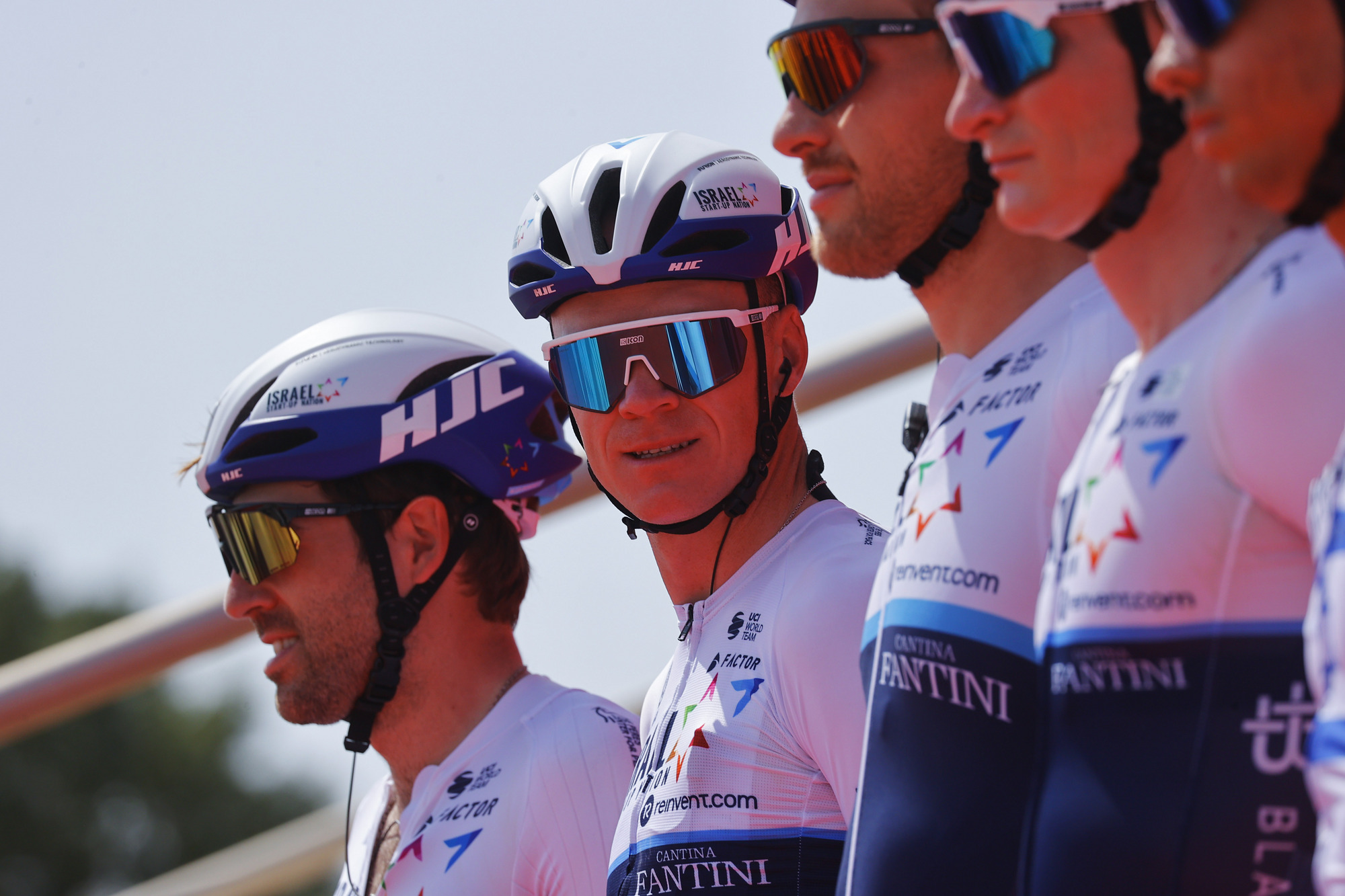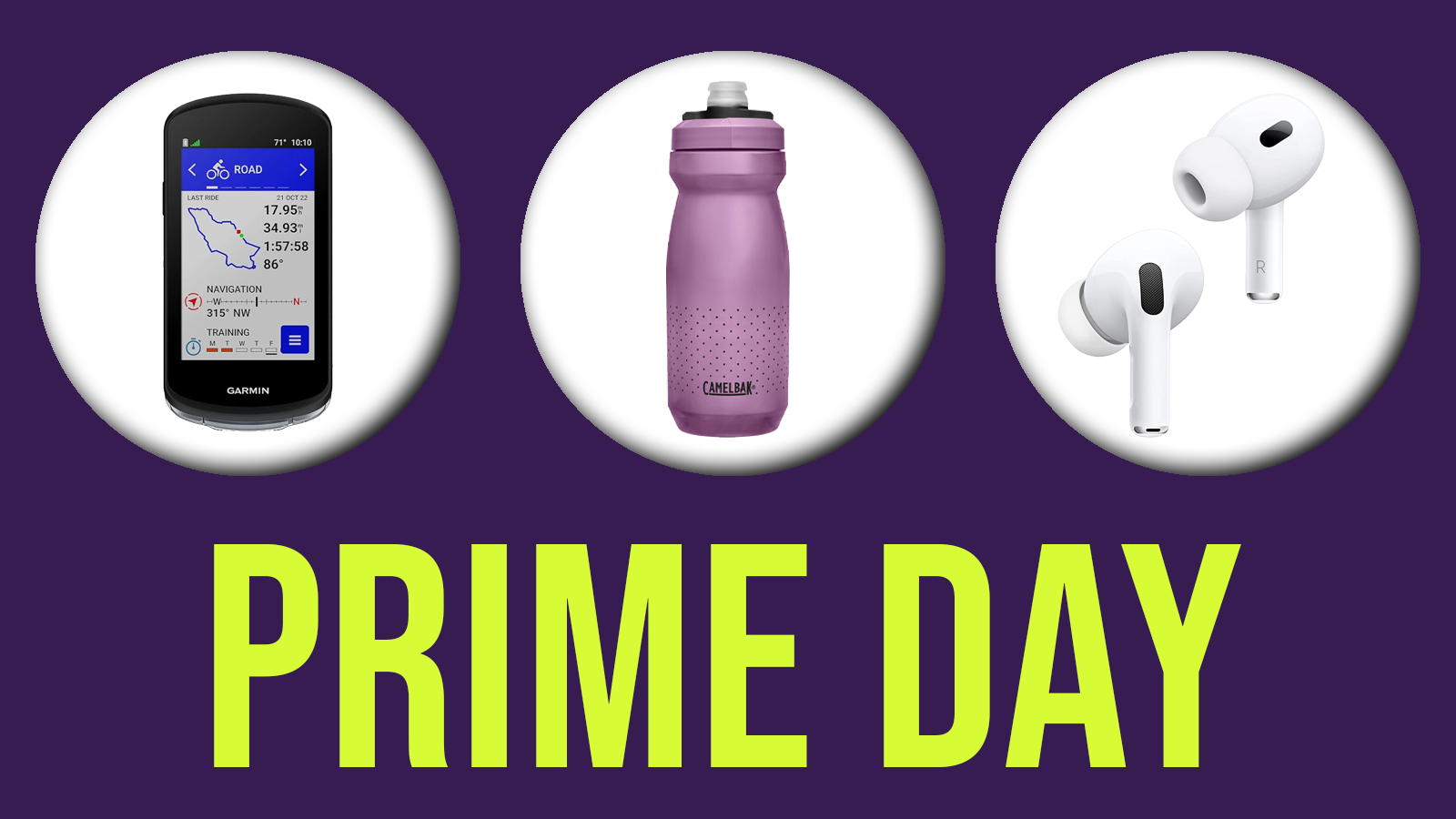Tour of the Alps - Preview
Froome, McNulty, Sivakov, Quintana, Pinot, Dan Martin and Simon Yates converge for showdown

The Tour of the Alps returns to the race calendar between April 19-23 after being absent in 2020, and the presence of Chris Froome (Israel Start-Up Nation), Nairo Quintana (Akrea-Samsic), Thibaut Pinot (Groupama-FDJ), Brandon McNulty (UAE Team Emirates), Jai Hindley (Team DSM), Simon Yates (Bike Exchange), Hugh Carthy (EF Education Nippo) and 2019 winner Pavel Sivakov (Ineos Grenadiers) should inspire some aggressive stage racing in the breathtaking mountains of northern Italy and southern Austria.
Formerly known as the Giro del Trentino, the five-day race was rebranded as the Tour of the Alps in 2017 as its route broadened to encompass the Euroregion of Tyrol–South Tyrol–Trentino in Italy and Austria. That has allowed the race to develop, improve and attract 13 WorldTour teams and their big-name leaders in 2021, many of whom will go on to fight for the Giro d’Italia in May.
Indeed, while pre-Grand Tour altitude training is considered important, the Tour of the Alps has been proven to be the best way to race on familiar roads with likely teammates before the corsa rosa. A spring trip to Italy in late April also offers a chance to carry out final Giro d’Italia reconnaissance rides before and after the Tour of the Alps. Team Sky were the first to start doing so a decade ago, now others do the same.
Race organisers have tightened their road safety and COVID-19 protocols for this year's race with pre-race testing and special permission to move between Austria and Italy.

Five days in the mountains
The 2020 Tour of the Alps was cancelled due to the COVID-19 pandemic but the race organisation confirmed the 2021 race would follow the same route, with the opening stages heading into Austria before then turning south for a finish at Riva del Garda overlooking the imposing Italian lake.
The race from Monday to Friday will comprise five short but arduous stages for a total of 13,000 metres of climbing. The major climbs have been carefully chosen to avoid the highest but snowy peaks of the Italian and Austrian mountains.
Transfers between stages have been reduced compared to 2019 as part of the race organisation’s bid to reduce the event’s carbon footprint, and the stage distances mean that it is still possible for some riders to travel to Belgium post-race and be competitive at Sunday’s Liège-Bastogne-Liège.
This year, stage 1 crosses into Austria by way of the Brenner Pass en route to Innsbruck, and the 142.8km leg features three laps of a finishing circuit over the Axams climb, which was on the time trial route at the 2018 World Championships.
The following day sees a summit finish at Feichten im Kaunertal after two other late climbs. The race crosses back into Italy on stage 3 with a 164km leg to Naturno with the climbs spread across the stage before the steep Tarres climb just 18km from the finish.
The longest and most demanding stage comes on the penultimate day, as the riders face 3380m of total climbing during the 168km leg to Pieve di Bono, via the Val di Non, Madonna di Campiglio and breathtaking Brenta Dolomites. The first ascent is the 1,706m-high Passo Castrin, the highest point of the Tour of the Alps, which is followed by the Campo Carlo Magno.
The final 120km stage is a short but demanding affair from the Valle delle Chiese to Riva del Garda, which includes the category 1 Passo Duran, as well as twin ascents of the climb of Pranzo before the finish on the northern shore of Lake Garda.

Names to remember for the Giro d’Italia
The 2019 Tour of the Alps was won by Pavel Sivakov, with his Ineos teammate Tao Gegoghan Hart combining to win stages and defeat Vincenzo Nibali. Sivakov is expected to shine and be a true alternative team leader to Egan Bernal in this year’s Giro and a second victory at the Tour of the Alps would set him on a sky high trajectory towards equal leadership.
Nibali is absent from the Tour of the Alps after recently fracturing his wrist in training but the presence of so many other big-name Grand Tour riders and other riders chasing results and Giro selection should produce some great racing.
The mountain stages will be a real test for Froome and perhaps finally confirm if he is on track to compete at the Tour de France. Dan Martin will lead Israel Start-Up Nation at the Giro d’Italia and will probably be on form and aggressive next week on the mountain finishes.
Nairo Quintana will surely be looking to prove a point after Arkea-Samsic missed out on a wild card invitation for the Giro d’Italia, while Lachlan Morton joins Carthy and Tejay van Garderen in the EF-Nippo squad.
Aleksandr Vlasov leads Astana as he builds for the Giro d’Italia, with Jai Hindley and Romain Bardet doing the same for Team DSM, while Emanuel Buchmann gets the support of former skier Anton Palzer, who makes his professional debut with Bora-Hansgrohe.
McNulty arguably has the best form of the Tour of the Alps after his performance at the Itzulia Basque Country and the easier route could further polish his Giro d’Italia credentials. While Tadej Pogacar targets the Ardennes, McNulty will have the support of Rafa Majka, fellow American Joe Dombrowski and Valerio Conti.
In the absence of Jumbo-Visma, we are likely to see a battle between UAE Team Emirates and Ineos Grenadiers, with everyone else looking to take advantage if they focus too much on each other.
The recent overall winners of the Tour of the Alps indicate the quality of the racing, with this year's winner pulling a green jersey rather than the red jersey of the past.
Before Sivakov’s victory in 2019, Thibaut Pinot won in 2018, Geraint Thomas in 2017, Mikel Landa in 2016 and Richie Porte in 2015. The 2021 winner will also be a name to remember come May and the Giro.
The latest race content, interviews, features, reviews and expert buying guides, direct to your inbox!

Stephen is one of the most experienced member of the Cyclingnews team, having reported on professional cycling since 1994. He has been Head of News at Cyclingnews since 2022, before which he held the position of European editor since 2012 and previously worked for Reuters, Shift Active Media, and CyclingWeekly, among other publications.
Latest on Cyclingnews
-
Amazon Prime Day bike deals: The sale is almost finished, this is your last chance to grab yourself a deal
Don't hang around, Amazon Prime Day is coming to an end but there are still some great deals available -
Where's the beef? The UAE-Visma Tour de France rivalry is intense but respectful so far
"UAE and Visma are perhaps the strongest teams but only one can win," says Mauro Gianetti -
'I wonder how they recover like that every day' – Mathieu van der Poel loses yellow jersey at Tour de France as Grand Tour fatigue sets in
Dutchman more than satisfied with performance in first seven stages despite getting dropped on return to Mûr-de-Bretagne -
'I don't know if I'm getting any closer to that win' – Oscar Onley best of the rest behind Pogačar and Vingegaard on Tour de France stage 7
World champion says young Scot has 'showed in the past already how a superb rider he is, with a punchy kick' after third place at Mûr-de-Bretagne



